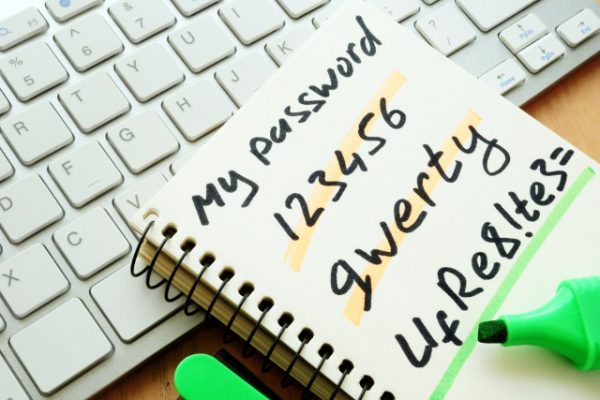Poor security habits leave Americans vulnerable to fraud

Despite high profile data breaches in 2019 and 33 percent of respondents having been a victim of fraud or identity theft, when asked if they update or change passwords following a data breach at a firm they deal with, 28 percent say only sometimes and nine percent say they don't update their passwords at all.
This is one of the findings of a Shred-it report for International Fraud Awareness Week which highlights the need for improvements in both digital and physical security.
It shows 41 percent of Americans who have been a victim of information fraud or identity theft did so because their credit card number was stolen or used, another 22 percent report that someone stole their information from physical paper documents and 20 percent say that a company they do business with was hacked.
"The International Fraud Awareness Week Report reveals that despite a rise in data breaches this year and heightened concern over identity theft, Americans' security habits are making them more vulnerable than ever to information fraud or identity theft," says Mike Borromeo, VP of data protection at Stericycle, the provider of Shred-it information security solutions. "As a supporting organization for International Fraud Awareness Week, we believe it's vital that security leaders bring awareness and stress the importance of protecting customer information, both online and in physical form, not only during this week dedicated to preventing fraud, but every day."
Nearly half (46 percent) of Americans believe they are vulnerable to information fraud or identity theft based on their physical and digital security habits. While nearly two-thirds are more concerned that they could fall victim to an online security breach, 13 percent are more concerned they could fall victim to a physical security breach.
Additionally 39 percent say they take more information security precautions at home, while 17 percent take more precautions at work and 40 percent are equally as cautious at home and work. However, 27 percent don’t shred paper or physical documents containing sensitive information before throwing them away at home, and 28 percent fail to do so at work.
Among poor security habits are that 51 percent admit to reusing passwords and PINs across multiple accounts. Women (53 percent) are more likely than men (49 percent) to reuse passwords/PINs and Generation Zs (60 percent) are the most likely to reuse passwords/PINS, compared to Millennials (59 percent) and Baby Boomers (46 percent).
20 percent of Americans admit to sharing their passwords/PINs for internet, entertainment or TV viewing services with family or friends. Also 31 percent of Americans think they could guess their significant other or close family member’s passwords/PINs.
You can find out more about the report on the Shred-it blog.
Image credit: designer491 / Shutterstock